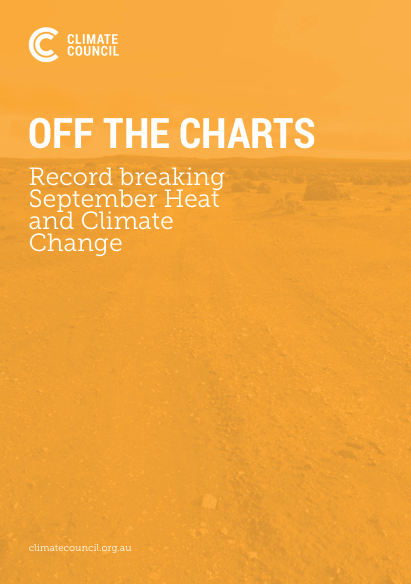This content is more than 9 years old
Australia has broken all the wrong records this year. We broke over 120 extreme weather related records in the 2012/2013 summer.
We experienced the hottest January on record, the hottest summer and the hottest day ever recorded in Australia. We have just experienced the warmest September in Australia’s history, as well as the warmest 12-month period, and we are on track to break yet another record for the warmest calendar year ever recorded in Australia.
Climate change means that we are experiencing hotter days, and heatwaves are becoming more frequent and more severe. Heatwaves have a wide range of negative impacts on human health, agriculture, industry and many plants and animals.
Six Key Facts
- This September is the warmest in Australia’s history, with the national average temperature for the month 2.75 degrees above the long-term (1961–1990) average. September 2013 also set a record for the largest positive anomaly (difference between the observed temperature and the long-term average) for any monthly average temperature.
- The average temperature for Australia for the 12 months from October 2012 to September 2013 was 1.25°C above the long-term average. This was 0.17°C warmer than any 12-month period prior to 2013.
- The frequency and severity of hot days and heatwaves is increasing as average global temperature is rising.
- Although Australia has always had heatwaves and hot days, climate change is increasing the risk of more frequent and longer heatwaves and more extreme hot days, as well as exacerbating bushfire conditions. There have been more than 100 heat-related records broken over the past year, and this year is on track to become Australia’s warmest year on record.
- Hotter days, occurring more frequently, present wide-ranging risks for human health and wellbeing. Good community understanding of climate change risks is critical to ensure we take appropriate action to reduce greenhouse gas emissions and to put measures in place to prepare for, and respond to, extreme weather.
- It is essential to reduce CO2 emissions rapidly and deeply to stabilise the climate and halt the current trajectory towards more extreme weather events and hotter average temperatures.
